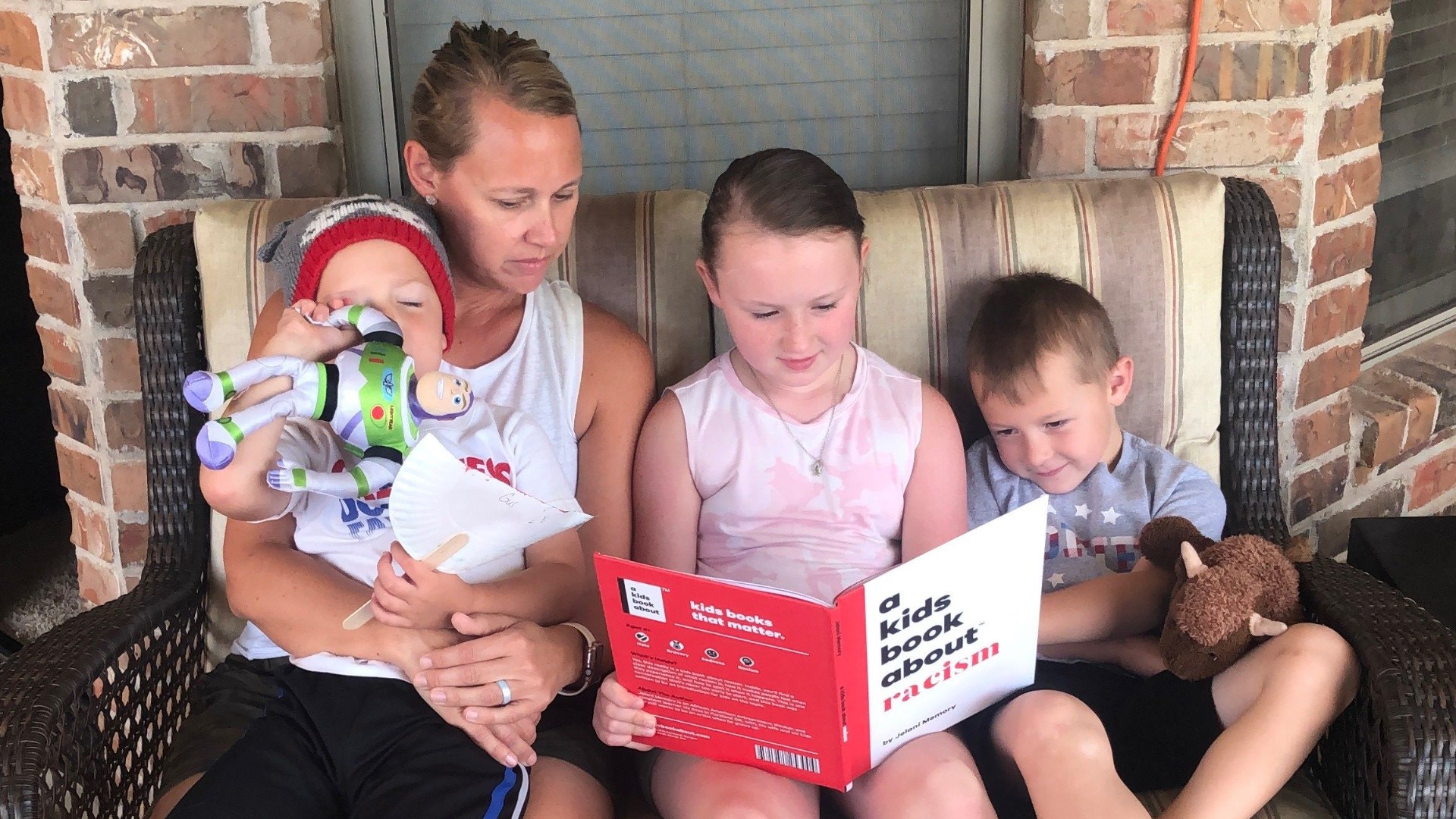PORTLAND, Ore. — As cities across the country see massive protests over the killing of a black man by police in Minneapolis, some parents are struggling with how to talk about racism with their children.
Portland author Jelani Memory wrote a book on that exact topic, and it’s helping some parents start the conversation. He said "A Kids' Book About Racism" intentionally written in a very straightforward voice, "tackling and diving straight into using words about race, culture, color and racism."
"Specifically it’s meant to provide language to talk about it and a starting point,” he said.
Memory initially wrote the book for his own children: Two brown kids and four white kids. He says as uncomfortable as it may be, parents shouldn’t be afraid to start a conversation about racism.
Kari Postlewait is a mother of three children and she is using the book to talk about racism with her 6- and 4-year-old sons.
“They need to know that people are treated differently based on the color of their skin and that’s not OK,” she said. After protests erupted nationwide in response to the killing of George Floyd, Postlewait wanted to talk about racial injustice with her kids, especially her two young boys.
“Their voice, unfortunately, is going to be heard a lot louder than other people’s," she said. "And I just want them to be able to make good decisions and use their voice for the right thing.”
Memory says just starting the conversation is key.
“Start it and see what happens, and don’t try to get everything right because you won’t get everything right," Memory said. "You can start to pull in some of your own experiences, the experiences of friends, but also point to things happening in the news.”
Memory was raised by a white mom and black dad. He says he understands the fear of talking about racism and the sentiment to say, "We’re all people and should just love each other." But, he explains, “The danger is that you end up teaching your kids that everyone has the same experience, and the reality is that for black individuals in this country the experience is not the same as for white individuals, just like it’s not the same for women--women of color--as it is for men."
Postlewait says she’s learning to be comfortable with the uncomfortable in order to make a change. "I feel like it all starts with my kids. I can fix it as an adult right now, but I can also raise my kids, especially my boys, to be an ally.”
Memory says his book is not the only resource out there to help people talk to kids about racism and other important topics
We’ve compiled a list of resources here on why the protests are happening and how people can help.

